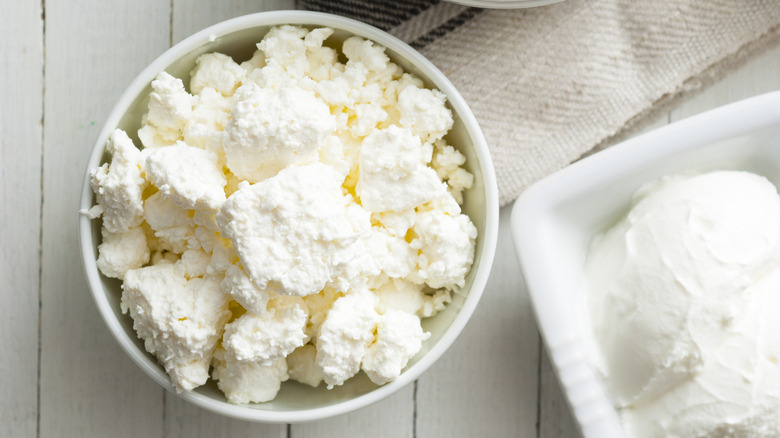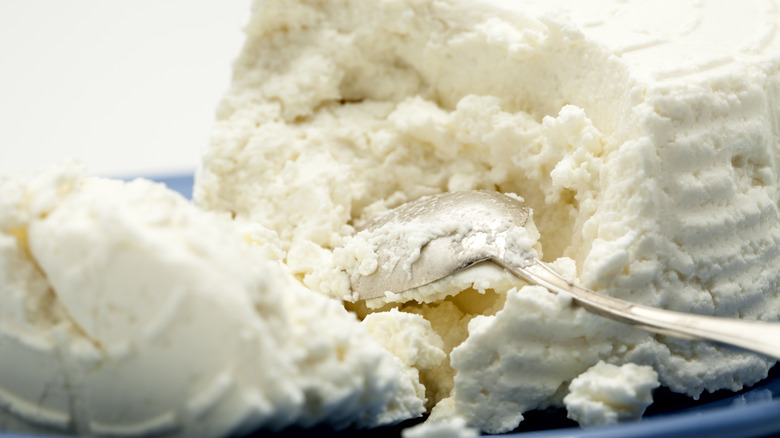How Long You Can Store Ricotta Cheese In The Fridge And Freezer
Ricotta cheese can be used in a plethora of versatile ways: topped on pizzas, stuffed into ravioli, or even integrated into desserts. Because of this, it's a good cheese to have on hand in your kitchen. However, if you're going to have it around, you need to know how long ricotta lasts in the fridge and the freezer.
One key detail to keep in mind is whether the package of ricotta cheese has been opened or not. Unopened ricotta will last about two weeks in the fridge, while opened ricotta will last just a week. As for the freezer, you can store ricotta for up to three months. When it comes time to thaw it, put it in the fridge overnight or until it reaches the right consistency.
Whether you choose to store it in the fridge or freezer, you'll need to transfer it to an airtight container (if it didn't already come in one). This helps keep the ricotta fresh and prevents any odors from other foods in the fridge from being absorbed into the cheese. It also helps to keep the ricotta toward the middle of the fridge, away from the door — this is because anything stored on the door is more susceptible to fluctuating temperatures. Speaking of temperatures, the perfect temp for ricotta to be stored at is between 35 and 40 degrees Fahrenheit, which is what your fridge should be set to already.
How to tell if your ricotta has gone bad
Whether you store your ricotta cheese in the fridge or freezer, you'll want to label it with the date to make sure you don't accidentally try to use it after its freshness window has elapsed. On top of that, it's also a good idea to know what to look out for when checking if the ricotta has gone bad. To start with, look out for any sort of odor. Ricotta doesn't have much of a smell to it, so if it smells foul or off in any way, then it's time to throw it out.
Additionally, look for any change in the ricotta's appearance. If it's growing mold, you'll have to throw the whole thing out. While you can cut the moldy parts of hard cheeses off and still safely eat the rest, soft cheeses — ricotta included — don't have the same benefit, according to the USDA. Finally, if you sample the ricotta, and it doesn't taste as it should in any way, then it's best to stay on the safe side and throw it out.

